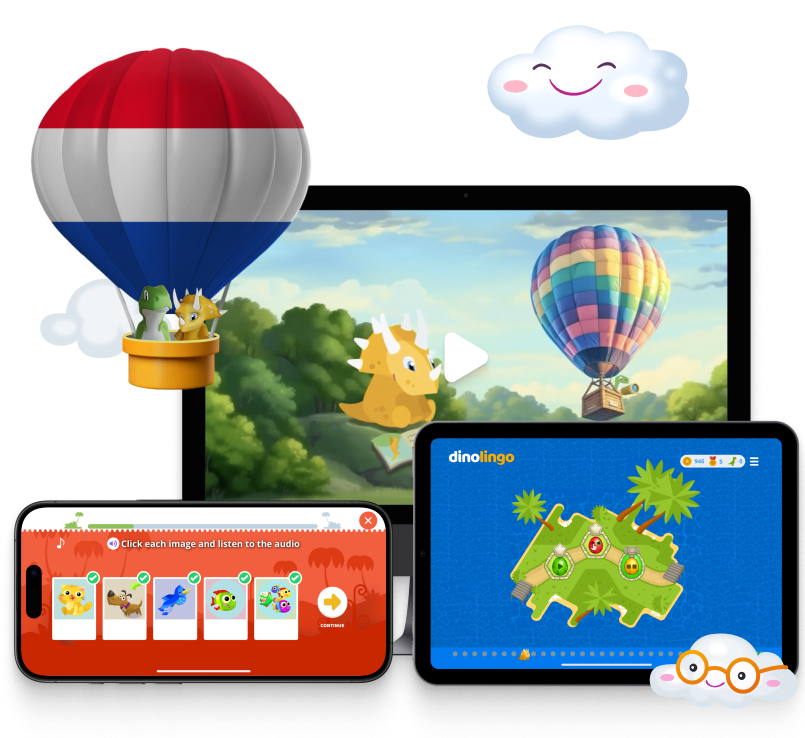Talk Back! Dutch Voice Practice Games Kids Will Love
Speaking is one of the most exciting parts of language learning for kids. Voice practice not only improves pronunciation, but it also builds confidence. With the right games and tools, children can start using Dutch words and phrases out loud with joy.
Why Voice Practice Is Important
Repeating words, answering questions, or acting out short conversations helps children:
- Practice pronunciation and intonation
- Strengthen memory through repetition
- Feel more comfortable speaking in real-life settings
And when these activities are designed as games, they feel less like “studying” and more like play.
Fun Voice Practice Games
“Echo Me!”
Say a Dutch word or phrase like Wat is dat? (What is that?) and ask your child to repeat it back exactly as you say it. Vary your tone, volume, or speed to keep it silly and fun.
“Question & Run” Game
Post simple questions around the room: Hoe heet jij? (What’s your name?), Wat zie je? (What do you see?). The child runs to a question, reads it out loud, and answers it using a full sentence.
Smart Speaking with Dinolingo
With songs, dialogues, and voice-based repetition, Dinolingo makes Dutch speaking practice simple and natural. Designed for ages 2 to 14, the program encourages kids to talk back to characters, sing along, and even repeat short phrases during interactive games. Offline worksheets and speaking prompts also help reinforce these skills away from the screen.
Final Thoughts
Voice games give children a reason to speak—and the courage to keep speaking. With fun activities and the right tools, Dutch becomes something they don’t just learn—they use.
Sources
Start Learning a New Language Today!
Best Language App for Kids.
7-day free trial. Then only $19/month. Cancel anytime.

